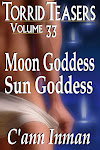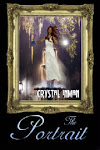I'm, alas, not speaking of myself. *snort*
Pick up a TV Guide. I know they're two dollars. (Does anyone remember them being around .79 cents?) But it's a good tool to study. Why, you ask? Because the trusty guide narrows down any movie or show to the meat of the matter. The bare facts, so to speak.
Examples:
Blast from the Past--A naive man raised in a bomb shelter ventures into the world for the first time and finds love.
9 to 5--Female employees get even with their chauvinistic boss.
Ocean's Twelve--Thieves go on a crime spree to repay a casino owner.
Four Weddings and a Funeral--Tale of the romance between a shy Brit and an uninhibited Yank.
Do you see what I'm saying? Here's the hook! Here is the basic plot of the entire movie. In one or two sentences!
It's not a blurb. It's not a synopsis. It is the heart of the piece. And this is what we need as writers at the very beginning. Before the layers. Before the characters quirks. Before anything. And readers need to be able to pick this out, as well. If the story is a major mass of tangling threads, then there's a problem. Because the essence of the story is lost.
So boil it down. Examine your basic idea. And then build on it. But always make sure your base is steady before you begin to stack on top of it. Or it'll all come tumbling down.
Grins*
Subscribe to:
Post Comments (Atom)
























2 comments:
I agree about the TV guide and how we can learn summarize the book in one sentence from their summary of the movie. It's not exactly a premise but it's the closest thing I can come up with.
In TV/movie Speak, they're called taglines. :) I wish I was better at coming up with them.
Post a Comment